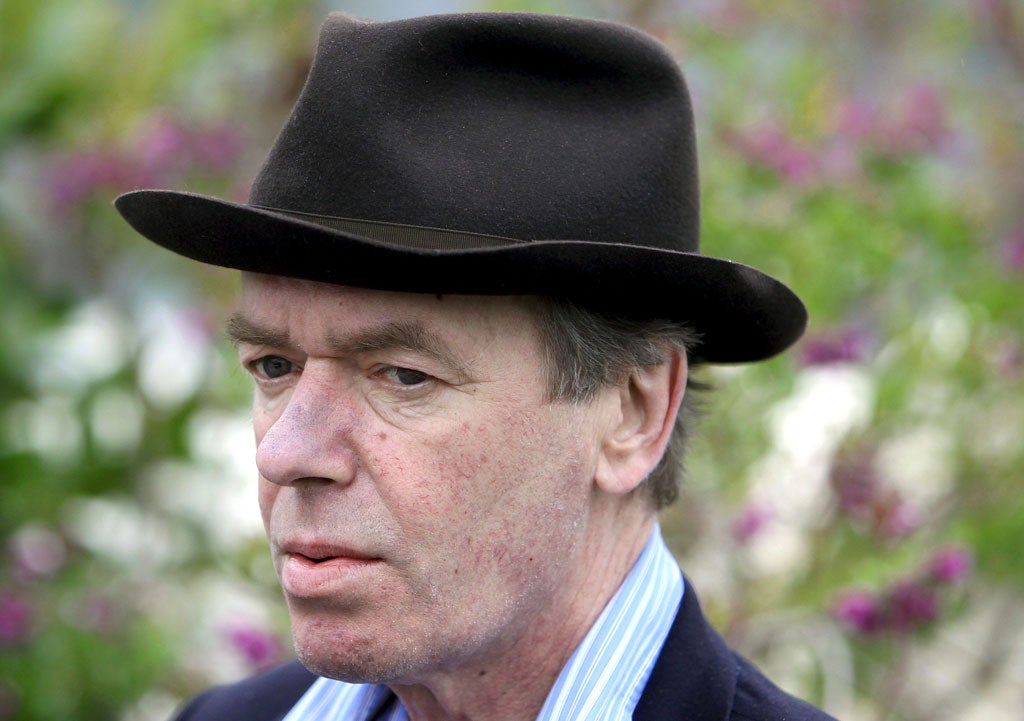Your support helps us to tell the story
From reproductive rights to climate change to Big Tech, The Independent is on the ground when the story is developing. Whether it's investigating the financials of Elon Musk's pro-Trump PAC or producing our latest documentary, 'The A Word', which shines a light on the American women fighting for reproductive rights, we know how important it is to parse out the facts from the messaging.
At such a critical moment in US history, we need reporters on the ground. Your donation allows us to keep sending journalists to speak to both sides of the story.
The Independent is trusted by Americans across the entire political spectrum. And unlike many other quality news outlets, we choose not to lock Americans out of our reporting and analysis with paywalls. We believe quality journalism should be available to everyone, paid for by those who can afford it.
Your support makes all the difference.It was Private Eye's anonymous critic, reviewing a Yann Martel novel, who warned of the dangers of writing about animals and allegory. He (or she) could usefully have gone on to advertise some of the perils of writing a biography of a living person. First, there is the problem of getting the subject on your side and keeping him there, never mind the threat to your objectivity that this relationship may nurture. Then there is the task of cajoling people who know him (who may regard the enterprise as a vanity project) to talk. Finally, there is the thought that most of your conclusions will necessarily be provisional, as the person may have two or three decades of vigorous existence still to live.
It takes an exceptionally brave biographer to weave around these obstacles, and Martin Amis: The Biography is a pattern demonstration of some of the obstructions that lie in wait. Mart himself turns out to have granted five long interviews; there is talk, in the introduction, of input from his second wife, Isabel Fonseca. Amis junior's regard for his anatomist's ability is made plain by a puff for Bradford's excellent life of Amis senior ("Nearly all critical biographies relate the work to the life – insidiously, tendentiously, helplessly. Richard Bradford is different. He does it convincingly"). On the other hand, a glance at the list of those consulted reveals only a succession of bit-parters. With two or three prominent exceptions, no one close to Amis seems to have thought the endeavour worth supporting.
Our man was born in 1949, the second son of a prodigiously talented and relentlessly philandering university lecturer, who five years later was to strike gold with Lucky Jim, arguably the most influential English novel of the early post-war period.
In interviews, Mart represents his childhood as a Bohemian idyll in which the hint of parental fecklessness is invariably submerged. Reading between the lines of Bradford's account of infant days in Swansea and, briefly, Cambridge to which the Amises removed before Kingsley's abandonment of his first wife for the novelist Elizabeth Jane Howard, I wasn't so sure. There is a moment in which Mart re-encounters one of his father's former Cambridge pupils, Sir Richard Eyre. "You were so unhappy," Eyre tells him.
Mart's education was a complete shambles until his stepmother took him in hand. Studiously hard-working at Oxford, two novels under his belt by his mid-twenties, the most saturnine babe-magnet who ever sashayed into a posh girls' Kensington flatshare, our hero had an early career to envy, which may explain some of the extraordinarily large volume of hostile criticism directed at him over the past 30 years, symbolised by that famous New Statesman competition for implausibly titled books, won by "Martin Amis: My Struggle".
Herein lies another problem faced by the modern literary biographer: no writer these days does very much except write books. As in his lives of Philip Larkin and Alan Sillitoe, Bradford is very good on some of the crises of Amis's life – divorce, father's death – and how they found themselves projected into the work.
What weakens the attempts to show what makes Mart tick, alternatively, is the discovery that most of the supplementary witnesses ("I hardly knew him, but...") are not up to the job, and a very definite sense of authorial punches being pulled. My own hunch is that Mart's lawyers crawled over the manuscript for months – the book was originally scheduled for publication in February – and a certain amount of emasculation took place.
Three things redeem the book, to the point where it becomes very good indeed. The first is the rambunctious presence of Christopher Hitchens, who dishes the dirt on everything from the sexual shenanigans to the early 1980s research trip to a New York "hand-job parlour" while researching Money.
The second is Bradford's skill at re-animating the cultural circles in which Mart flourished during his early London period, in particular the Anthony Howard-era New Statesman.
The third is his provocative readings of many of the novels. Meanwhile, a full account of the circumstances in which this biography was written would be fascinating to read. I hope that Richard Bradford can be persuaded to write it.
DJ Taylor's latest novel is 'Derby Day' (Chatto & Windus)

Join our commenting forum
Join thought-provoking conversations, follow other Independent readers and see their replies
Comments